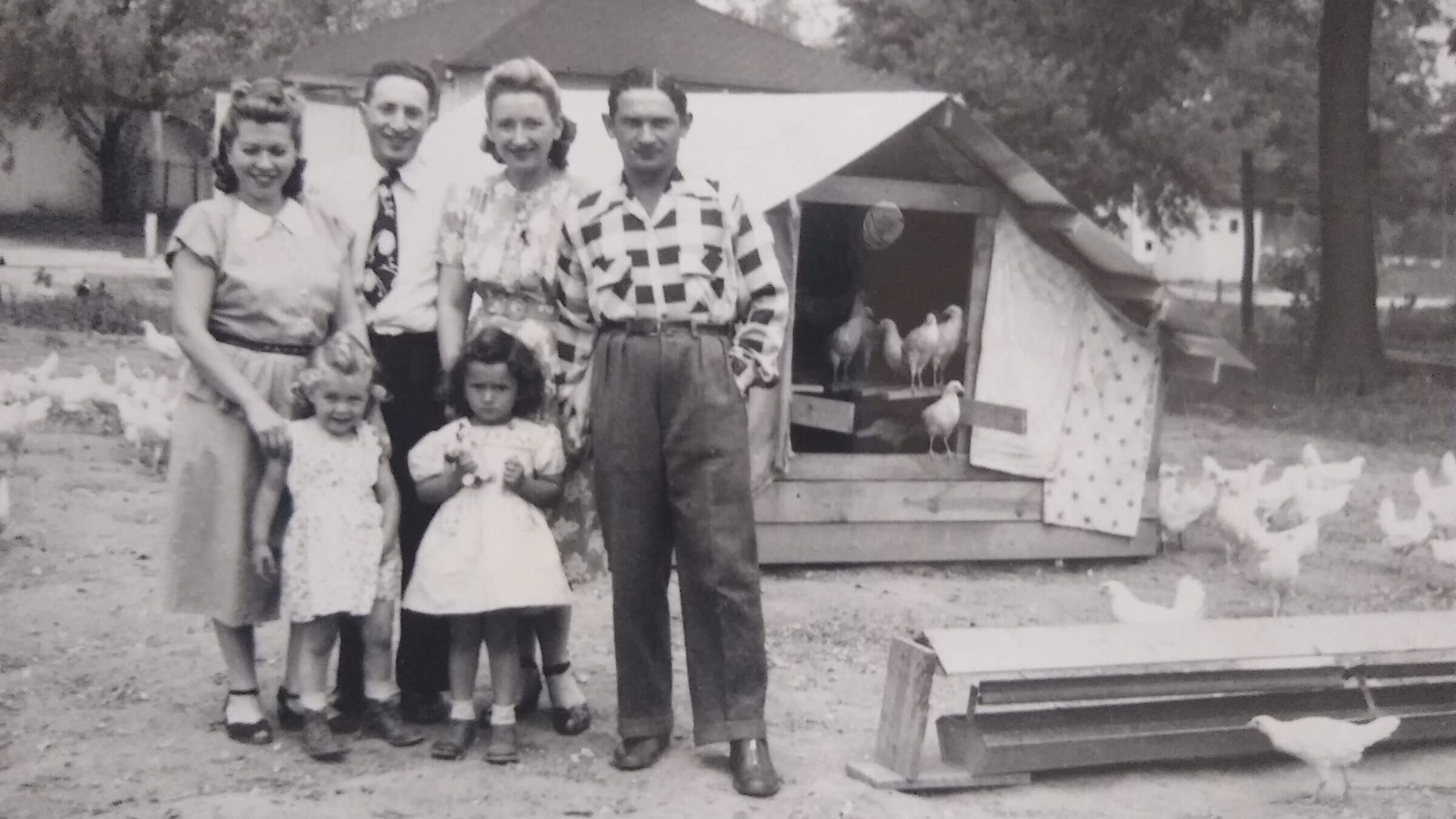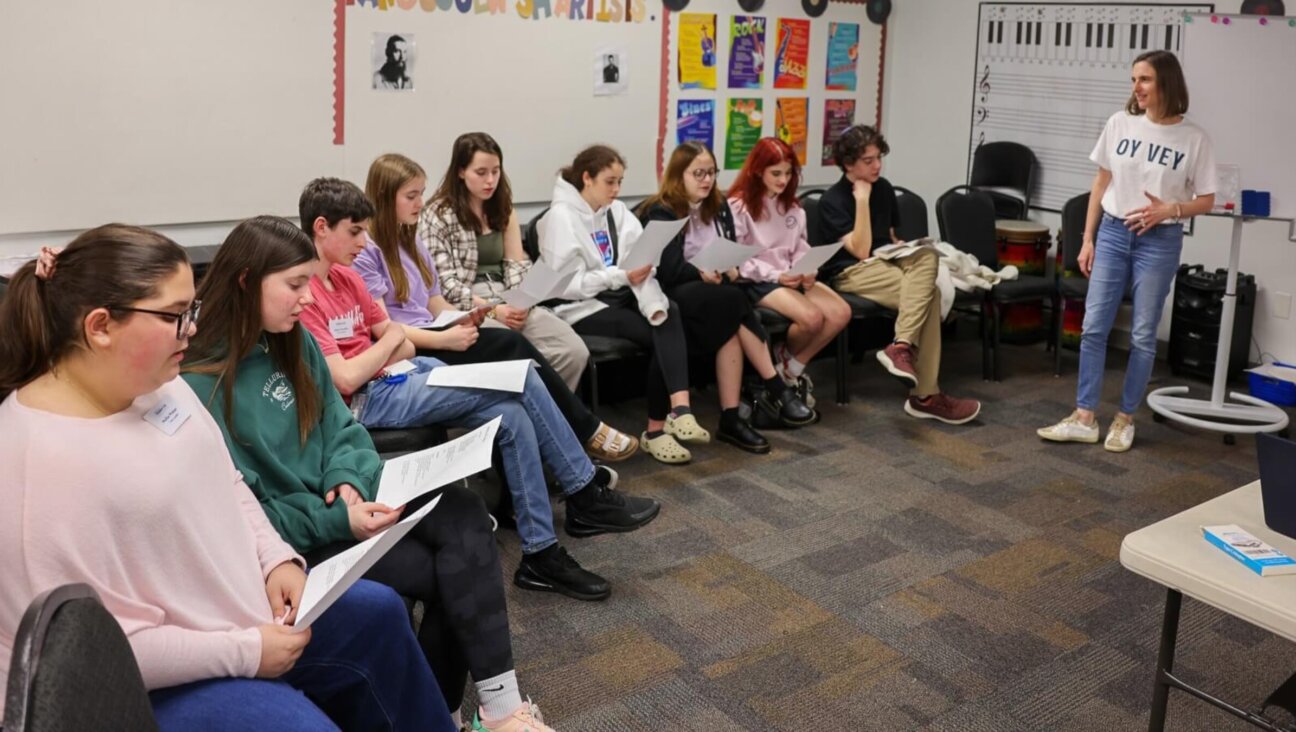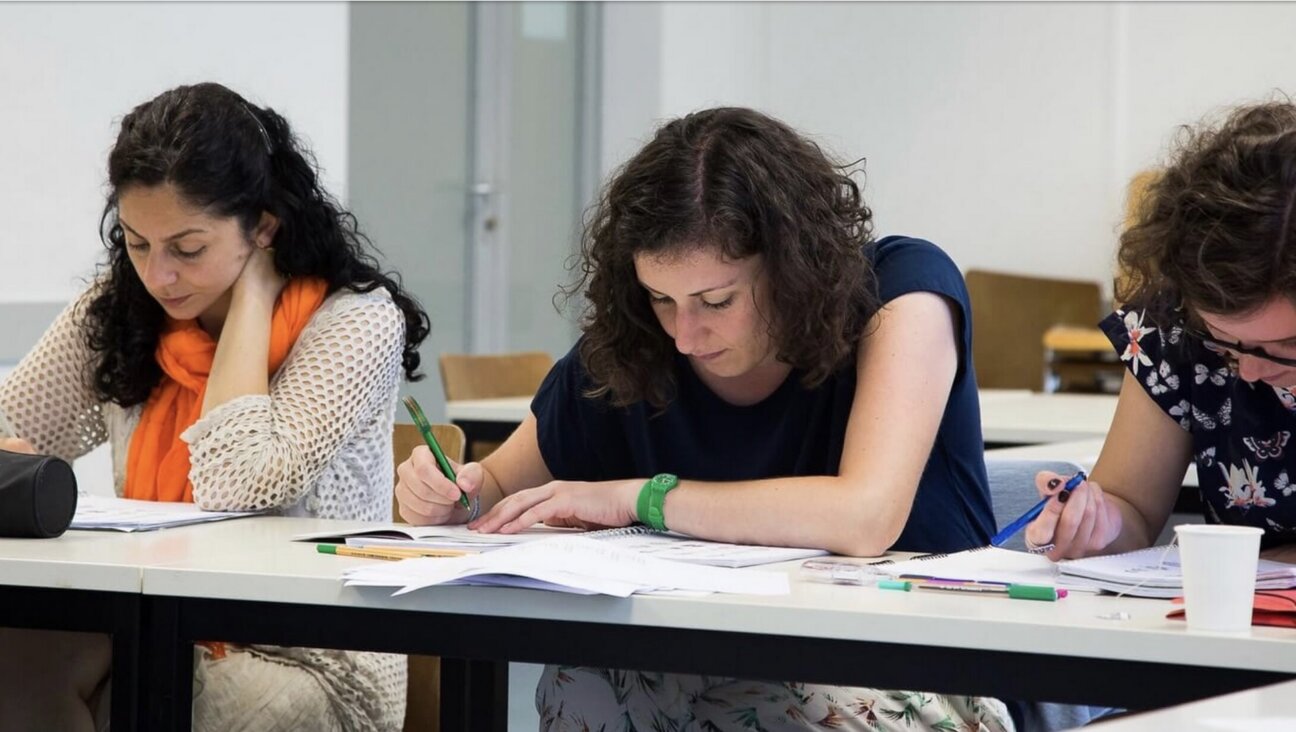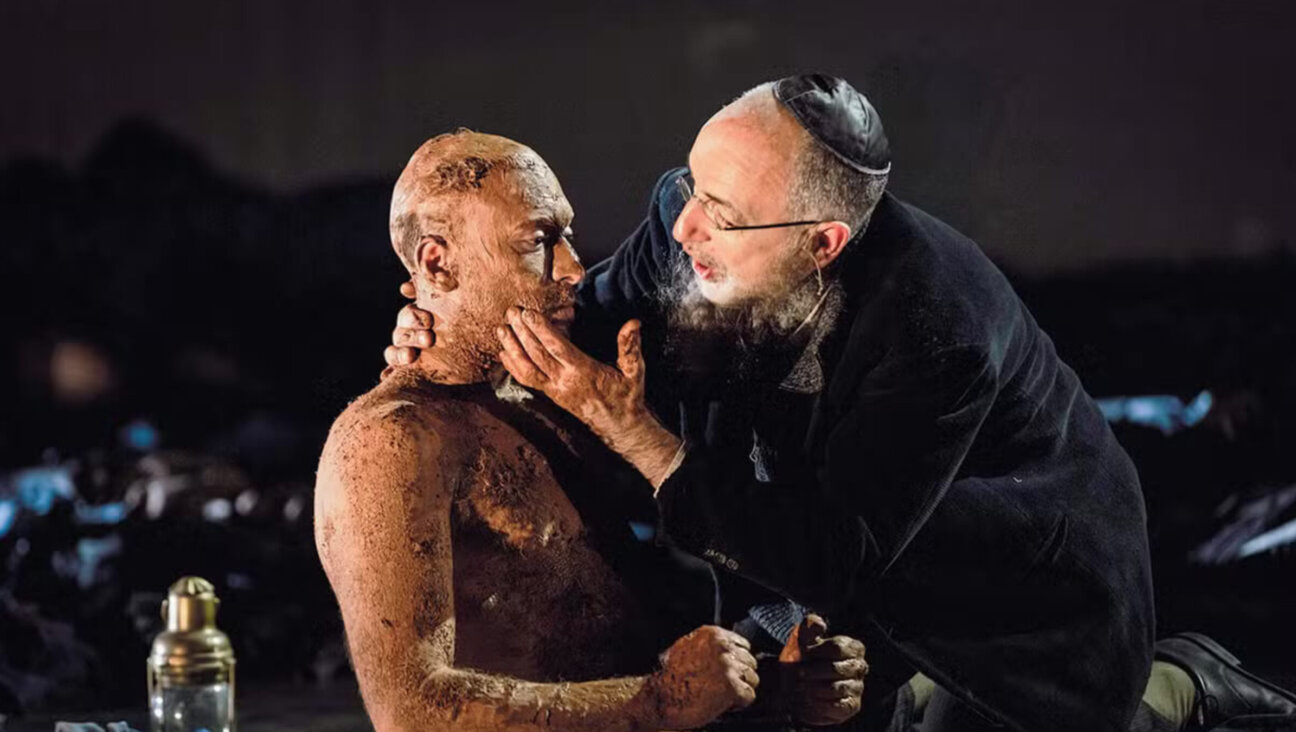Speaking Yiddish to chickens: Holocaust survivors on South Jersey chicken farms
These new farmers, adapting to an isolating rural way of life, found comfort in Yiddish culture, a link to lost families and hometowns

Two families on the Vineland, New Jersey-area poultry farm they jointly purchased in 1947. Courtesy of Seth Stern
Few people know that after World War II, roughly a thousand Holocaust survivors settled in southern New Jersey as poultry farmers. My own grandparents were among them. Most of their farms were in and around Vineland, a small city of 30,000 people halfway between Philadelphia and Atlantic City.
These accidental farmers, adapting to an alien and often isolating rural way of life, found comfort in Yiddish culture. It was a link to lost childhoods, families and hometowns.
Southern New Jersey had long been a magnet for Jewish immigrants from Europe seeking refuge on farms. Idealistic young Russian Jews arrived first in the 1880s, building collective agricultural colonies amid the nearby wilderness.
In the early 1940s, some of the few escapees from Nazi Germany arrived. They purchased poultry farms with the help of the Jewish Agricultural Society. This was an organization underwritten by a German-born financier, Baron Maurice de Hirsch.
The two previous waves of refugees had managed to build a uniquely robust Jewish community in South Jersey. By 1950, Vineland was home to multiple kosher delis, butcher shops and bakeries, three synagogues and just as many Zionist organizations. Thanks to the survivors, it was one of the rare Jewish communities in rural America that kept growing after World War II. Residents in similar small towns elsewhere fled to the cities and suburbs.
They hosted dinner dances and offered loans to farmers in need
The grine (immigrants right off the boat) didn’t necessarily feel welcome by the existing Jewish community. So they largely kept to themselves, building their own institutions. These included half a dozen small synagogues called shtiblekh within walking distance of their farms.
They also organized their own landsmanshaft. This was a mutual aid society and social club similar to the ones that sprang up earlier among Jewish immigrants in bigger cities.
The survivors called an early version of their group the Vineland Area Poultry Farmers Farband (farband is the Yiddish word for association). Later they settled on the more Americanized name, Jewish Poultry Farmers Association. Their farband hosted Hanukkah parties and New Year’s Eve dinner dances and offered short-term loans to farmers in need. They also invited many Yiddish artists to perform there, most of whom were also displaced persons.
One of them was singer Diana Blumenfeld, whose deep alto was a siren call to their lost world. She performed with her husband, Jonas Turkow, a Yiddish actor and director. The duo sang together in Poland’s Jewish theaters before the war and in underground cabarets while trapped inside the Warsaw Ghetto. They also performed in newly liberated cities after the Germans retreated and in displaced persons camps where fellow survivors sought refuge.
Later they performed wherever the remnants of European Jewry had scattered, including New York City, Miami Beach and Buenos Aires.
In March 1950, their USO-like tour brought Blumenfeld, Turkow, and their troupe of entertainers to Vineland. The event was billed as “an evening of Yiddish talent and laughter.”
According to a report in the magazine Jewish Farmer, the standing-room-only crowd became “gripped with tense emotion” during Blumenfeld’s songs. They were also “convulsed with laughter” while watching a Yiddish comedy routine. Jewish Farmer was a national Yiddish/English publication from the Jewish Agricultural Society that covered Jewish farming throughout the country.
A “rare new Jewish settlement on American soil”
In the years ahead, dozens more Yiddish performers followed. Among them were other husband-and-wife teams like Nachum Melnick and Devorah Rosenblum, as well as Ben-Zion Witler and Shifra Lerer.
But it wasn’t just stage entertainers that came to Vineland. Chaim Grade, one of the leading Yiddish writers of the 20th century, lectured there on his thoughts about the future of Judaism in America. When the farmers heard that the comic duo Dzigan and Schumacher was coming, the organizers knew they’d need a large venue. They chose Vineland High School, since it was one of the few locales that could hold several hundred people.
In 1962 the Forverts published a tribute to the Vineland Jewish community. Journalist Icek Shmulewitz recalled the “excited anticipation” he felt from the audience before his many lectures at the farmers’ events in Vineland. He also described the “longing” he felt when it was time to leave. He praised “the rare new Jewish settlement on American soil” where farmers created a “warm, truly Jewish” environment.
Yiddish — or what some survivors referred to as “Jewish” — wasn’t just something they listened to during these shows. It was the language of their communal life, whether at farband meetings or their annual Warsaw Ghetto memorial each spring.
They joked and gossiped in Yiddish — mixed with Polish or Hungarian — at weekly games of poker or Rummy. They played this at each other’s farmhouses late into the night, even though everyone needed to rise before dawn to tend to the chickens.
One survivor hosted a weekly Yiddish show called A Gut Vokh (“A Good Week”) on a local radio station. Their farband even organized a lending library of world literary classics translated into Yiddish. The library was open to the public every Sunday night at the hall of the local Veterans of Foreign Wars. (An organizer admitted at the time that circulation was only “fair.”)
For the children, Yiddish was often their first language
For survivors’ children, like my mother born in Europe soon after the war ended, Yiddish was often their first or second language. They picked it up long before they learned English at the local two-room rural schoolhouse.
By the mid-1960s, most of the survivors had abandoned poultry farming. Egg prices had plunged and massive new operators in the South made it all but impossible for small family farms to compete.
The farmers and their children scattered; some to Atlantic City, others — like my family — to Brooklyn.
The Yiddish performances dwindled and Vineland’s kosher delis, butcher shops and shtiblekh shuttered.
In Vineland, Yiddish has long since given way to Spanish, the language of another wave of migrants, this time from Puerto Rico. Like the grine before them, these new settlers saw South Jersey’s farms as a gateway to a better life.
Seth Stern is a legal journalist at Bloomberg Industry Group and author of Speaking Yiddish to Chickens: Holocaust Survivors on South Jersey Poultry Farms, to be published on March 17, 2023 by Rutgers University Press.






















